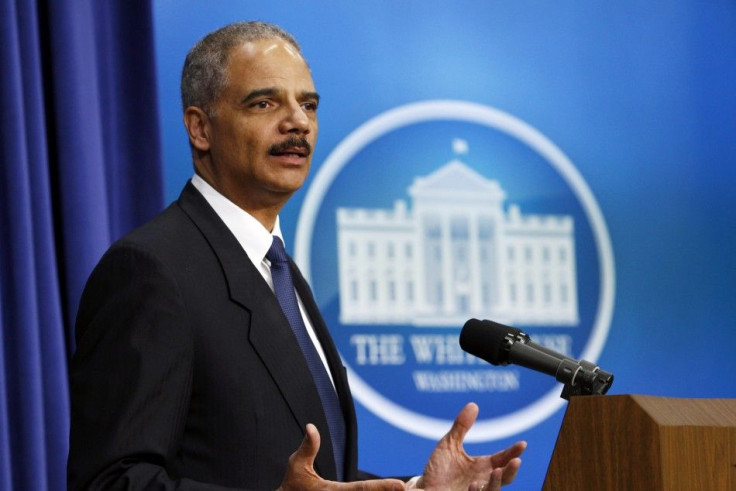Voter ID Laws: Texas Accuses Justice Department of Slow-Walking Approval

Texas has accused the U.S. Department of Justice of slow-walking the approval of its strict new voter ID law that the state says will likely be rejected by the Obama administration.
The Justice Department must sign off on the new voter ID law because Texas is covered by a section of the 1965 Voting Rights Act that requires states with a history of racial discrimination to receive preclearance to any election law changes.
South Carolina's voter ID law was denied preclearance from the Justice Department in December, leading Texas to believe that its law will meet the same fate. Instead of waiting for the rejection, the Lone Star State will try to get approval from a three-judge panel in Washington.
Texas assumes the DOJ will apply the same legal analysis and standards that it applied to South Carolina's voter ID law, Texas said in a suit from Monday, noting the seeming probability of an eventual rejection.
Texas Gov. Rick Perry signed off on the voter ID law in May and submitted its first batch of voter data to the Justice Department in July. The Justice Department said the state's voter data was insufficient to determine if the law will disenfranchise minority voters and asked for more information, according to the suit.
Texas handed over additional information, but said the state will no longer wait on the department, only to meet with further delays and demands. A Justice Department spokesperson said Texas' law is still under review and declined to comment further on Texas' suit.
Eight Other State Have Strict Photo ID Laws
In the U.S., eight states have strict photo ID laws like Texas', according to the National Conference of State Legislatures. Voters would need to show a government-issued photo ID or meet requirements for a free election identification certificate. There are 31 states that require voters to show some kind of identification.
Texas should be allowed the same authority other states have to protect the integrity of elections, Texas Attorney General Greg Abbott said in a statement Monday. To fast-track that authority, Texas is taking legal action in a D.C. Court seeking approval of its voter identification law.
Attorney General Eric Holder has been putting these new laws under scrutiny, promising in a speech to crack down on discriminatory voter ID regulations.
The reality is that - in jurisdictions across the country - both overt and subtle forms of discrimination remain all too common, Holder said in December. And we don't have to look far to see recent proof.
Critics of tough new voting ID laws say they have a disproportionate impact on minorities, the poor, rural communities and college students -- mostly groups that tend to support Democrats. A report had estimated that 5 million eligible voters will be affected.
Republican and conservative supporters argue these laws prevent voter fraud, though cases involving people attempting to vote under another person's name are few and far between.
In Texas' suit, the state defended the law against allegations of racial discrimination, saying it resembles one in Indiana that the U.S. Supreme Court upheld in 2008.
© Copyright IBTimes 2025. All rights reserved.





















